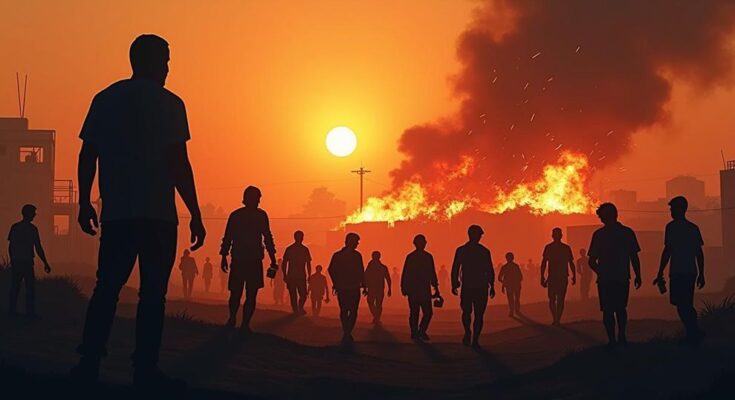Chad has experienced significant political turmoil marked by Idriss Déby’s rise to power in 1990, following the ousting of Hissène Habré. Déby’s regime faced numerous coups, allegations of fraud, and ongoing conflict from opposition factions. The situation was further complicated by regional instability, including a refugee influx from Sudan and rising threats from groups like Boko Haram. Following Déby’s death in April 2021, a transitional military government was established, signifying continued uncertainty for Chad’s political future.
Chad’s tumultuous political landscape has been significantly characterized by the rise of Idriss Déby, who came to power in 1990 after forcing the ousting of Hissène Habré, a former president accused of severe human rights violations. Following Habré’s flight from Chad, Déby swiftly consolidated power, suspending the constitution and positioning himself as president. Although he announced intentions to shift towards a multiparty democracy, his regime was marred by corruption and oppression, while facing persistent challenges from various rebel factions aligned with Habré. Throughout his presidency, Déby fended off multiple coup attempts and maintained control despite allegations of election fraud, particularly evident in his reelection processes. His government witnessed intermittent conflict, especially from opposition groups like the Mouvement pour la Démocratie et la Justice au Tchad (MDJT), leading to significant internal strife. Chad’s geopolitical situation further exacerbated its internal issues, particularly due to the influx of refugees from conflicts in neighboring Sudan. As these conditions unfolded, international support, such as the European Union and United Nations peacekeeping forces, attempted to stabilize the situation. In the context of regional terrorism, Déby’s administration positioned Chad at the forefront of anti-Islamic militant efforts, especially following the incursion of Boko Haram, even as domestic political freedoms continued to erode. The 2016 election was marked by heightened protests against Déby’s administration, yet he emerged with a substantial victory amidst claims of electoral misconduct. In recent developments, following his reelection in April 2021, Déby’s life was tragically cut short in battle against rebels. Following his death, the military dissolved the government and established a transitional regime, temporarily placing his son, Mahamat Idriss Déby Itno, at the helm of leadership. This succession of power underscores the ongoing volatility in Chad’s political sphere and its implications for future governance and stability.
Chad’s history is riddled with conflict, marked by the fall of various regimes and the challenge of establishing a functioning government amid rampant corruption and civil strife. The shift from Habré’s brutal dictatorship to Déby’s prolonged rule illustrates the difficulty of achieving stability in a nation plagued by the legacy of violence and extreme political repression. Moreover, the geopolitical dynamics surrounding Chad, including refugee crises and incursions from neighboring countries, further complicate its political fabric. Understanding these factors is crucial for grasping the complexities of Chad’s ongoing struggles with governance and civil unrest.
In summary, Chad’s political narrative is dominated by instability, characterized by Idriss Déby’s lengthy but controversial presidency, marked by resistance to opposition forces and allegations of electoral fraud. His administration faced ongoing rebel uprisings and grappled with external threats, particularly from Islamic militant groups operating in the region. Following Déby’s recent death in combat, the transition to a new regime remains uncertain, highlighting the continuous challenges facing Chad as it navigates the intricate interplay of internal and external pressures.
Original Source: www.britannica.com




